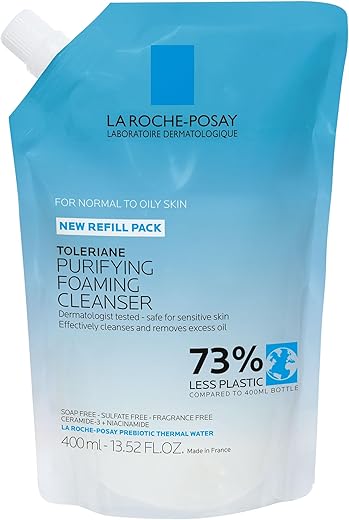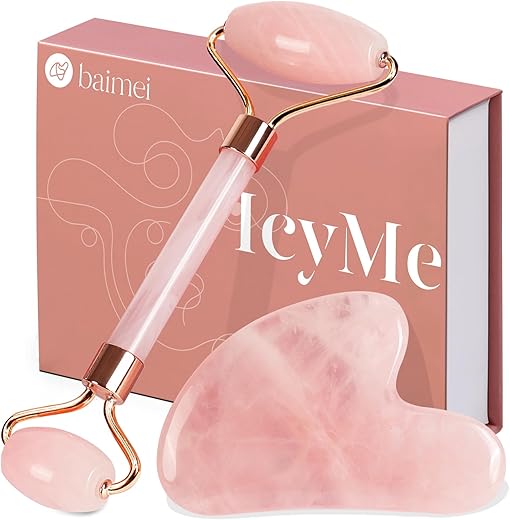
What is a face hydrating mask?
Are you tired of dull and dehydrated skin? Do you long for a radiant and glowing complexion? If so, you’re not alone. Many of us struggle to keep our skin hydrated, especially in today’s fast-paced and stressful world. That’s where a face hydrating mask comes in. In this blog post, we will dive into the world of face hydrating masks, exploring what they are, how they work, and the benefits they can bring to your skincare routine. Get ready to give your skin the hydration boost it deserves!
Discover the Most Popular Face Hydrating Masks!






What is a Face Hydrating Mask?
Face masks have become an essential part of our skincare routine, offering a wide range of benefits. Among the different types of masks available, a face hydrating mask stands out as a crucial tool for achieving and maintaining hydrated, nourished, and healthy skin. In this blog section, we will define what exactly a face hydrating mask is and delve into how it differs from other types of masks.



Understanding Face Hydrating Masks
Face hydrating masks are specifically designed to replenish and lock in moisture in the skin. They are formulated with ingredients that have hydrating properties, such as hyaluronic acid, glycerin, aloe vera, and various botanical extracts. These masks typically come in the form of a cream or gel and are applied directly to the face, forming a thin layer that is left on for a specific duration.
How is it Different from Other Types of Masks?
Hydration vs. Cleansing Masks
While cleansing masks are primarily focused on drawing out impurities and purifying the skin, hydrating masks, as the name suggests, focus on replenishing moisture. Cleansing masks often contain ingredients like clay or charcoal, which can be drying for some skin types, whereas hydrating masks provide a surge of moisture to combat dryness and dehydration.
Hydration vs. Exfoliating Masks
Exfoliating masks are designed to remove dead skin cells and promote cell turnover, resulting in a smoother and more radiant complexion. While these masks can be beneficial, they can sometimes be too harsh for sensitive or dry skin. On the other hand, hydrating masks are gentle and soothing, providing intense hydration to alleviate dryness and restore the skin’s natural moisture balance.
Hydration vs. Sheet Masks
Sheet masks have gained immense popularity in recent years due to their convenience and ease of use. These masks consist of a thin sheet soaked in a serum or essence, which is placed on the face for a specific duration. While sheet masks can offer hydration, they often provide a temporary fix. On the contrary, face hydrating masks are typically cream or gel-based, allowing the skin to absorb the nourishing ingredients more effectively and provide long-lasting hydration.
Benefits of Face Hydrating Masks
- Intense Hydration: Face hydrating masks provide an immediate surge of moisture, replenishing dry and dehydrated skin.
- Improved Skin Texture: Regular use of hydrating masks can help improve the overall texture of the skin, leaving it soft, smooth, and supple.
- Enhanced Skin Barrier: The hydrating ingredients in these masks help strengthen the skin’s natural barrier, protecting it from external aggressors and preventing moisture loss.
- Soothing and Calming: Hydrating masks often contain ingredients with soothing properties, making them ideal for sensitive or irritated skin.
- Anti-Aging Effects: Continuous hydration can help reduce the appearance of fine lines and wrinkles, giving the skin a more youthful and plump appearance.
Benefits of Using a Face Hydrating Mask
Taking care of our skin is an essential part of maintaining a healthy and youthful appearance. One of the simplest yet most effective ways to nourish and hydrate our skin is by incorporating a face hydrating mask into our skincare routine. In this blog section, we will explore the various benefits of using a face hydrating mask and why it should be an integral part of your skincare regimen.

1. Deep Hydration
One of the primary benefits of using a face hydrating mask is its ability to deeply moisturize the skin. These masks are formulated with ingredients that penetrate deep into the skin layers, providing intense hydration and replenishing moisture. Unlike regular moisturizers, face hydrating masks have a thicker consistency and are designed to deliver long-lasting hydration. This deep hydration helps to plump up the skin, reducing the appearance of fine lines and wrinkles.
2. Increased Nourishment
Face hydrating masks are packed with nourishing ingredients that provide essential nutrients to the skin. These masks often contain ingredients such as hyaluronic acid, aloe vera, vitamins, and antioxidants, which work together to nourish and revitalize the skin. The nutrients present in these masks help to improve the overall health of the skin, leaving it looking radiant and rejuvenated.
3. Improved Skin Texture
Regular use of a face hydrating mask can help improve the texture of your skin. The deeply moisturizing formula helps to soften and smoothen rough patches, leaving the skin feeling silky and supple. It also aids in reducing the appearance of acne scars, blemishes, and uneven skin tone. With consistent use, you’ll notice a significant improvement in the overall texture and complexion of your skin.
4. Soothing and Calming Effect
If you have sensitive or irritated skin, a face hydrating mask can provide a soothing and calming effect. The cooling sensation of the mask helps to reduce redness and inflammation, providing relief to irritated skin. The nourishing ingredients in the mask also help to restore the skin’s natural barrier, protecting it from environmental aggressors and further irritation.
5. Enhanced Absorption of Skincare Products
Using a face hydrating mask before applying other skincare products can significantly enhance their absorption. The hydration provided by the mask helps to plump up the skin, creating a smoother surface for better product penetration. This means that the serums, moisturizers, and other products you apply after using a hydrating mask will be more effectively absorbed, maximizing their benefits.
6. Relaxation and Self-Care
Apart from the physical benefits, using a face hydrating mask also offers a moment of relaxation and self-care. Taking some time out of your busy day to pamper yourself with a hydrating mask can be a therapeutic experience. The soothing sensation and pleasant fragrance of the mask can help to reduce stress and enhance your overall well-being.
In conclusion, incorporating a face hydrating mask into your skincare routine can provide numerous benefits for your skin. From deep hydration and increased nourishment to improved texture and enhanced absorption of skincare products, the advantages are undeniable. So why not treat yourself to a little self-care and enjoy the rejuvenating effects of a face hydrating mask? Your skin will thank you!
Note: The information provided in this blog section is based on general knowledge and should not replace professional skincare advice. Consult a dermatologist or skincare specialist for personalized recommendations.
How to Use a Face Hydrating Mask
Taking care of your skin is an essential part of any beauty routine, and using a face hydrating mask is a great way to pamper and nourish your skin. Whether you have dry, dehydrated skin or just want to give your skin a boost of hydration, a hydrating mask can work wonders. In this blog post, we will guide you through the step-by-step process of using a face hydrating mask for optimal results.



Step 1: Cleanse Your Face
Before applying any mask, it’s crucial to start with a clean slate. Use a gentle cleanser to remove any dirt, oil, or makeup from your face. Pat your skin dry with a clean towel.
Step 2: Exfoliate (Optional)
If you have time and want to maximize the benefits of your hydrating mask, consider exfoliating your skin. Exfoliation helps remove dead skin cells and allows the hydrating mask to penetrate deeper into your skin. Choose a gentle exfoliator and massage it onto your face using circular motions. Rinse off the exfoliator thoroughly and pat your skin dry.
Step 3: Apply the Hydrating Mask
Now it’s time to apply the mask. Follow these steps for a smooth application:
- Start by scooping out a generous amount of the hydrating mask using a clean spatula or your fingertips.
- Apply an even layer of the mask to your face, avoiding the delicate areas around your eyes and mouth.
- Gently massage the mask onto your skin using upward circular motions. This helps stimulate blood circulation and aids in better absorption.
- Make sure to cover your entire face, including the jawline and neck if desired.
Step 4: Relax and Let it Work
Once the mask is applied, it’s time to sit back, relax, and let the hydrating ingredients do their magic. Leave the mask on for the recommended time mentioned on the product label. This is usually around 10-15 minutes, but it can vary depending on the brand and mask type.
While waiting, you can enhance your relaxation experience by:
- Listening to soothing music
- Reading a book or magazine
- Practicing deep breathing exercises
- Meditating
Step 5: Rinse Off the Mask
After the recommended time has passed, it’s time to remove the mask. Follow these steps:
- Use lukewarm water to gently rinse off the mask. Avoid using hot water, as it can strip away the natural oils from your skin.
- Splash your face several times with water to ensure all traces of the mask are removed.
- Pat your skin dry with a clean towel. Remember to be gentle and avoid rubbing your face.
Step 6: Moisturize
After rinsing off the mask, it’s essential to lock in the hydration by applying a moisturizer suited for your skin type. Look for a moisturizer that complements the hydrating mask and provides long-lasting hydration.
Key Points:
- Cleanse your face before applying the mask.
- Exfoliation can maximize the benefits of the hydrating mask.
- Apply the mask evenly, massaging it onto your skin.
- Relax and let the mask work for the recommended time.
- Rinse off the mask with lukewarm water, avoiding hot water.
- Moisturize your skin afterward to seal in the hydration.
Using a face hydrating mask is a simple yet effective way to nourish and hydrate your skin. By following these steps, you can achieve a radiant and plump complexion. So why not indulge in some self-care and give your skin the hydration it deserves?
Factors to Consider When Choosing a Face Hydrating Mask
When it comes to taking care of our skin, hydration plays a crucial role in maintaining its health and radiance. One effective way to provide intense hydration to the skin is by using a face hydrating mask. However, with so many options available in the market, choosing the right one can be overwhelming. To help you make an informed decision, we have compiled a list of important factors to consider when selecting a face hydrating mask.



1. Skin Type
Every individual has a unique skin type, and it’s important to choose a face hydrating mask that suits your specific needs. Here are some common skin types and the type of masks that work best for them:
- Dry Skin: Look for masks that are rich in moisturizing ingredients like hyaluronic acid, glycerin, or shea butter. These ingredients help to nourish and hydrate dry skin.
- Oily Skin: Opt for hydrating masks that are lightweight and oil-free. Ingredients like aloe vera, cucumber, or tea tree oil can help control excess oil without stripping away moisture.
- Combination Skin: Choose a face hydrating mask that balances hydration without clogging pores. Look for masks that contain ingredients like rosehip oil, jojoba oil, or green tea extract.
- Sensitive Skin: Select masks that are gentle and fragrance-free. Look for ingredients like chamomile, oatmeal, or aloe vera, which have soothing properties and are less likely to cause irritation.
2. Ingredients
The quality and effectiveness of a face hydrating mask largely depend on its ingredients. Here are some key ingredients to look for:
- Hyaluronic Acid: Known for its ability to retain moisture, hyaluronic acid helps to hydrate the skin from within and improve its elasticity.
- Glycerin: A humectant that attracts moisture to the skin, glycerin helps to prevent water loss and keep the skin hydrated.
- Ceramides: These natural lipids help to strengthen the skin’s barrier, preventing moisture loss and maintaining hydration.
- Natural Oils: Ingredients like jojoba oil, almond oil, or avocado oil provide intense hydration and nourishment to the skin.
- Antioxidants: Look for masks containing antioxidants like vitamin C or green tea extract. These ingredients help to protect the skin from environmental damage and promote a healthy complexion.
3. Brand Reputation
Choosing a face hydrating mask from a reputable brand ensures that you are investing in a product that has been well-formulated and tested. Consider brands that have a history of producing high-quality skincare products and have positive customer reviews. Reading customer testimonials and checking ratings can give you insights into the effectiveness and reliability of the brand.
Benefits and recommendations for using a face hydrating mask
In summary, a face hydrating mask is a powerful tool in maintaining healthy and hydrated skin. Its ability to nourish, moisturize, and revitalize the face makes it a must-have in any skincare routine. By incorporating a face hydrating mask into your regimen, you can achieve a radiant and glowing complexion. So go ahead and give it a try – your skin will thank you!

Hey, I’m Ava Wilson—a skincare enthusiast and a certified esthetician. I’m dedicated to sharing my knowledge and empowering others to achieve healthy, glowing skin through simple, effective routines and natural remedies. Join me on this exciting skincare journey, and let’s unlock your skin’s potential for a confident, beautiful you.





